Domestic visits
“There is a future in Armenia and Artsakh: by working hard and improving each square meter of our homeland, we will reach the future” - PM Visits Vayots Dzor Marz
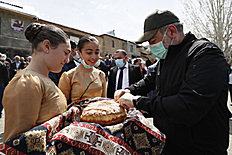 1670x1113px - 626 Kb
1670x1113px - 626 Kb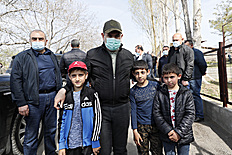 1670x1113px - 789 Kb
1670x1113px - 789 Kb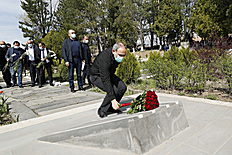 1670x1113px - 1 Mb
1670x1113px - 1 Mb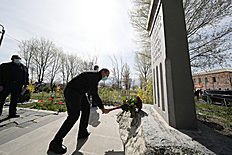 1670x1113px - 899 Kb
1670x1113px - 899 Kb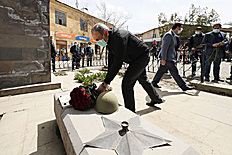 1670x1113px - 697 Kb
1670x1113px - 697 Kb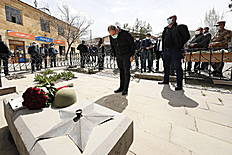 1670x1113px - 774 Kb
1670x1113px - 774 Kb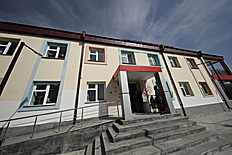 1670x1113px - 430 Kb
1670x1113px - 430 Kb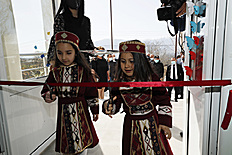 1670x1113px - 623 Kb
1670x1113px - 623 Kb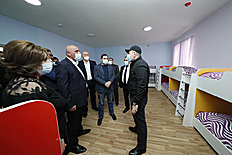 1670x1113px - 492 Kb
1670x1113px - 492 Kb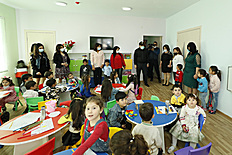 1670x1113px - 632 Kb
1670x1113px - 632 Kb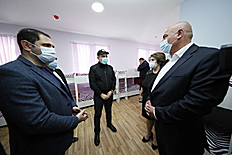 1670x1113px - 461 Kb
1670x1113px - 461 Kb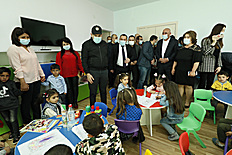 1670x1113px - 605 Kb
1670x1113px - 605 Kb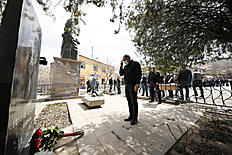 1670x1113px - 823 Kb
1670x1113px - 823 Kb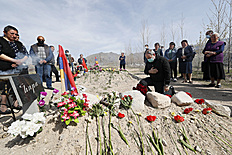 1670x1113px - 950 Kb
1670x1113px - 950 Kb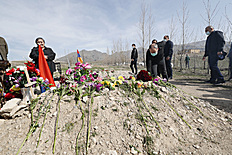 1670x1113px - 948 Kb
1670x1113px - 948 Kb 1670x1113px - 684 Kb
1670x1113px - 684 Kb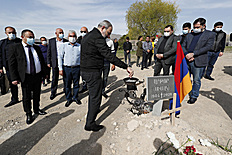 1670x1113px - 891 Kb
1670x1113px - 891 Kb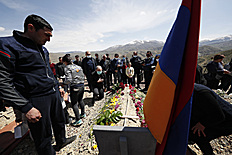 1670x1113px - 629 Kb
1670x1113px - 629 Kb 1670x1113px - 759 Kb
1670x1113px - 759 Kb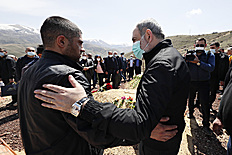 1670x1113px - 530 Kb
1670x1113px - 530 Kb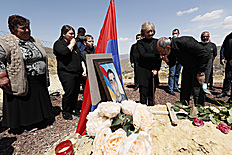 1670x1113px - 738 Kb
1670x1113px - 738 Kb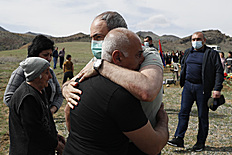 1670x1113px - 435 Kb
1670x1113px - 435 Kb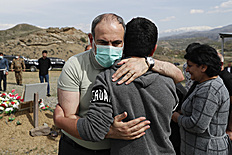 1670x1113px - 564 Kb
1670x1113px - 564 Kb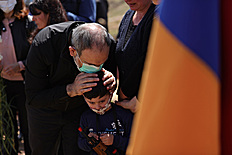 1670x1113px - 332 Kb
1670x1113px - 332 Kb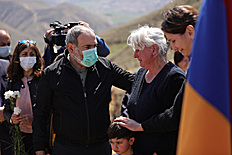 1670x1113px - 393 Kb
1670x1113px - 393 Kb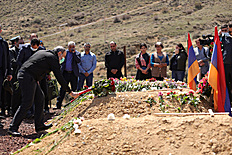 1670x1113px - 888 Kb
1670x1113px - 888 Kb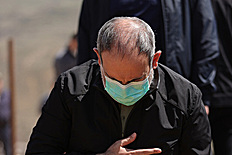 1113x1670px - 364 Kb
1113x1670px - 364 Kb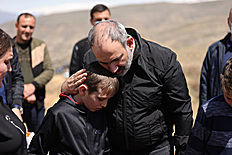 1670x1113px - 504 Kb
1670x1113px - 504 Kb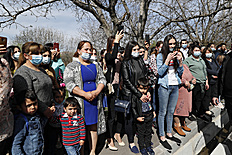 1670x1113px - 1 Mb
1670x1113px - 1 Mb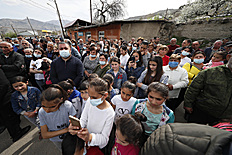 1670x1113px - 804 Kb
1670x1113px - 804 Kb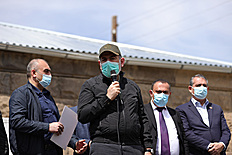 1670x1113px - 411 Kb
1670x1113px - 411 Kb 1670x1113px - 938 Kb
1670x1113px - 938 Kb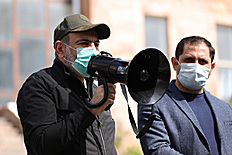 1670x1113px - 513 Kb
1670x1113px - 513 Kb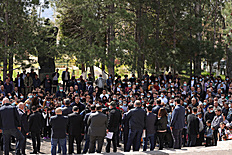 1670x1113px - 1 Mb
1670x1113px - 1 Mb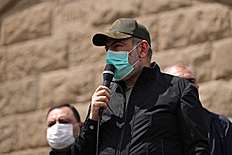 1670x1113px - 356 Kb
1670x1113px - 356 Kb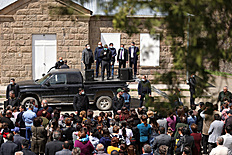 1670x1113px - 962 Kb
1670x1113px - 962 Kb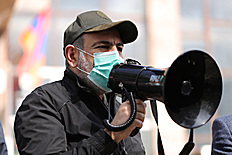 1670x1113px - 398 Kb
1670x1113px - 398 Kb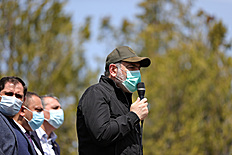 1670x1113px - 393 Kb
1670x1113px - 393 Kb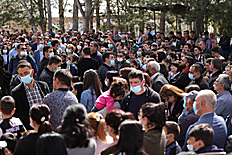 1670x1113px - 759 Kb
1670x1113px - 759 Kb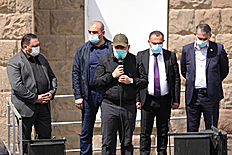 1670x1113px - 492 Kb
1670x1113px - 492 Kb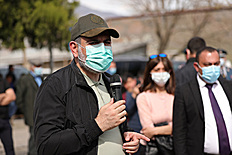 1670x1113px - 433 Kb
1670x1113px - 433 Kb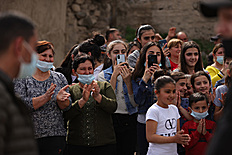 1670x1113px - 511 Kb
1670x1113px - 511 Kb 1670x1113px - 343 Kb
1670x1113px - 343 Kb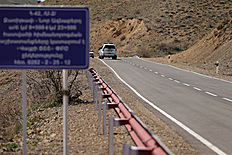 1670x1113px - 748 Kb
1670x1113px - 748 Kb
more 41 photos
Prime Minister Nikol Pashinyan traveled to Rind, Zaritap, Khndzorut and Getap communities of Vayots Dzor Marz. The head of government met with the locals, touched upon the current situation in the country, the circumstances of the Artsakh war, the prospects for economic development and upcoming programs.
The meetings started with a minute of silence held in memory of those killed during the 44-day war. In each community, Prime Minister Pashinyan announced the names of residents of these communities who died during the war and visited their graves. Addressing the residents of the communities, the Prime Minister noted:
“Dear people,
It is important for us to answer the question why our guys died. There is a very clear answer to this question: so that the Republic of Artsakh could stand. And we have to state that yes, although wounded, Artsakh is standing. And we have to state that the goal of Azerbaijan and Turkey was the annihilation of Artsakh as an entity. And it was thanks to our guys, our soldiers, our army that we were able, yes, with difficulty, but we survived the 44-day war. Yes, Artsakh is wounded, we are all wounded, but Artsakh is standing, the Republic of Armenia is standing.
I would like to draw your attention to a number of events we witnessed of late. A few days ago, the OSCE Minsk Group Co-Chairs issued a statement in which they stressed the need to resolve the Nagorno-Karabakh conflict, implying thereby that the issue is still unresolved. Why is this important? This is important because Azerbaijan tried to imagine that the Karabakh issue is resolved once and for all, that there is no Karabakh issue as such. However, the Co-Chairs stressed that the issue should be resolved, and on the basis of the principles of the elements known to the parties.
Let me remind you that the most important of these elements is the right of the people of Artsakh to self-determination. And we can state that the Artsakh people’s right to self-determination has been preserved at the international level. This was achieved at the cost of our guys’ heroism and lives. And in this regard, I want to refer to our security, because many times questions have been raised about which system should ensure the security of Armenia and Artsakh.
The security of Armenia and Artsakh is being guaranteed, just as it was the case yesterday, by the Armenian-Russian military-political alliance and partnership. And I want to emphasize that one of the most important components of our security system is the united Armenian-Russian military grouping, which implies that an attack on Armenia means an attack on Russia.
The deployment of peacekeeping troops in Artsakh adds to Artsakh’s security guarantees. But I would like to highlight another fact. In the context of the 44-day Karabakh war, there is a lot of talk about what Russia’s role was, or why that role was not what some in Armenia thought it was. And how do we assess the Armenian-Russian friendship and strategic partnership in this context?
Of course, the Armenian-Russian friendship and partnership is strong, as it used to be in the past and will be such in the future. Russia is our ally. Russia is a fraternal state, but I want to state once again that Russia is not an enemy to Azerbaijan, and Azerbaijan is not seen as an enemy in Russia. Russia has lived up to its commitment to Armenia, because the security mechanism we had affected the borders of the Republic of Armenia. The borders of the Republic of Armenia are described in the law of the Republic of Armenia on administrative-territorial division adopted as early as in in 2010.
I invite your attention to this nuance: in 2010 the Republic of Armenia adopted a law on administrative-territorial division, which stipulated that Azerbaijan was to the east of Shurnukh community; not the Republic of Artsakh, but Azerbaijan. It stated that east of Kapan is Azerbaijan; not the Republic of Artsakh, but Azerbaijan.
I will not touch on the details of the war today, because the day before I had touched on this topic in parliament all day in my lengthy speech, as well as during the question and answer session. But I also wish to emphasize: yes, my assessment is that the 44-day war was inevitable, because Armenia actually reached its redline in terms of concessions on the Nagorno-Karabakh issue in 2018. There was no other way out but to try to stand up, to defend our rights, to defend the interests of the Armenian people and the people of Artsakh.
But I will say more, even if we tried to reach a peaceful settlement at the cost of these concessions, there would be war again. Why? Because the disagreements between the mediating circles and in the region had deepened to such an extent that there would be no solution - even if Armenia agreed to a solution that was not in its best interest - there would be no solution that the other players would agree to. And consequently, in the context of these contradictions, hostilities would inevitably break out.
But now the main question is how to overcome this defeat, how to overcome this blow. There is only one answer: through hard work, through creative work. 74% of arable land in Vayots Dzor remains uncultivated. These 74% have not been cultivated for 25-30 years. This means that no value was created from that 74%. It was because of this that so little income came to the state budget, little income came to people’s homes, families received little income, the army was so underfunded, roads were underfunded, education was underfunded, the healthcare system was underfunded. And therefore, we must solve these problems of ours through work.
Arable land needs to be cultivated in Vayots Dzor Marz. Of course, we ought to realize that part of it is not cultivated as it lies in border areas. We must solve this problem as well. Part of arable land is not cultivated due to lack of irrigation water. We should solve this problem, too.
Seven billion cubic meters of water is generated annually in Armenia’s highlands. We collect only 1 billion cubic meters in reservoirs. And we should develop a policy to implement a large-scale reservoir building program in Armenia.
We have come up with a new proposal for our farmers. We must encourage widespread use of drip irrigation. And we want to launch the following program: for five years we will not take money for water from those owners of land with an area of up to three hectares who will use drip irrigation. And we will definitely launch this program. Those. water will be free for them.
Then we launched a program to permanently increase teachers’ salaries. And starting this November certified teachers will get 30 to 50 percent higher wages. As a result, we will have only qualified teachers in schools who will receive a decent salary.
We are taking measures to bring closer the quality of teaching in provincial schools and downtown Yerevan. To do this, we will first create an institute of distance education, so that, for example, a teacher can conduct a lesson in Yerevan, and where there are not enough teachers, lessons can be broadcast via the Internet in other villages. There will be only a teacher-instructor in the class to ensure the presence and attention of the children.
We need to develop Armenia’s economy. How? Yes, we must take the path of unblocking communications. Today everyone wants to scare people by saying that Azerbaijan will have a route to Nakhichevan through Armenia. By the way, there is a lot of manipulation about the so-called corridor. Azerbaijan keeps talking about the “Zangezur corridor.” But we can hit back stressing that the joint statement does not mention Syunik, Zangezur or Meghri, or the concept of “corridor.”
They keep stating that they will have a Zangezur Corridor. Okay, let them say so. Then we will have a corridor through Nakhichevan, we will have a northern corridor in Azerbaijan. That is, we will offer a road for a road. Imagine how the economy of Armenia will change if we have a railway communication with the Islamic Republic of Iran and the Russian Federation. This is our most important task, after which Armenia will have the opportunity to use its greatest wealth.
Armenia is one of the richest countries in terms of copper reserves. Today copper is said to be “the oil of the 21st century.” Just a couple of days ago, the price of copper set a historical record, exceeding $9,000 per ton. But we cannot take full advantage of our national wealth because we are a country that exports ore. The opening of the railroad will allow us to open a copper smelter in Armenia. This means that we will not export ore, but metal, and not even metal, but processed metal products - copper wire, cables.
Why is the price of copper rising? Because we live in the era of electric vehicles, green energy, alternative energy, and copper is the most important component of alternative energy and electric vehicles. This means that we will be able to reinstate Armenia as an industrial nation, because our economy will be based on copper processing industries.
I referred to our core ideas in three areas: security, public education, agriculture and industry. We must develop and move forward along this path.
I would also like to touch on several political issues. For example, rumors have been circulating in recent months about the government, saying that we supposedly have a weak government. But let me tell you the following: everyone called for the government’s resignation after November 2020. I called it a revolt of the pseudo-elites against the government. If our government was weak, how would it have survived so long?
Our government is strong. Or what should our government have done to say that it is strong? Were we supposed to break into the parliament and shoot the country’s political elite? Or otherwise should we take a man to the toilet and beat him to death just because he had said “Hi, Nikol” so that everyone would start saying, “Look how strong the government is.” We have a weak government, since we have not bought houses in Baden-Baden or on the Greek islands, we do not have millions in Swiss banks, we do not have millions in Armenian banks.
No, we are a strong government, but we are strong with the people. We are still standing here, because our power comes from you. It is not based on money or crime.
I came here to say two things. First, to apologize to you for all the disappointments we have caused you during this time, and there have certainly been disappointments. Some were of objective nature, others - subjective, but that is a different topic. I want to apologize, but I know that you realize that nothing has been done maliciously.
There were challenging situations. I would like to cite a specific example of frustration and show that not everything comes that easy and not everything is so bad. For example, there is a lot of talk about fairness and justice. There is a lot of talk about why some individuals have not been indicted yet. In general, the cornerstone of justice is the well-known formula: if you want to establish justice and fairness in the country, you must follow the following principle: it is better for the guilty to remain free than for the innocent to end up in prison.
Why do they say that? Because if you arrest a guilty person not today, not tomorrow, but the day after tomorrow, you will bring him to justice, and justice will prevail. And if you imprison an innocent person for 3 years, 5 years, 10 years, and then even if you apologize, what happened to him will still be an injustice, you will not restore justice.
I would like to call your attention to the following fact: today we have the smallest ever number of arrested and convicted people in the Republic of Armenia. There have never been so few people in the prisons as they are today. What does it mean? This means that we have achieved serious progress in the field of justice, since we can state that there are no innocent people kept in Armenia’s prisons. Yes, there are many potential criminals at large. If they have committed a crime, the hour will inevitably come to bring them to justice, but there are no innocent people in prison. And this is the biggest and most important achievement.
The next question I want to address is as follows: some people want to say that relations with the Diaspora used to be pretty good throughout the history of the Third Republic, and that relations have deteriorated under our rule.
But let us see the figures. So, the Hayastan All-Armenian Fund was founded in 1992. By 2018, the Fund had raised $289 million from the Diaspora. Remember these figures. After 2018, $247 million was transferred to the Hayastan All-Armenian Fund. Of course, a significant part was transferred during the 44-day war. But even during the 44-day war, the Hayastan All-Armenian Fund raised more than 70 percent of what had been collected over the past 28 years. What do these indicators testify to? If they did not trust the authorities, they would not have donated these funds to the fund.
There were attempts to question the efficiency of spending the fund, but it did not work either. And now we announced that we are implementing housing and infrastructure projects worth over AMD 100 billion in Artsakh. It means that within the framework of this one program, the Hayastan All-Armenian Fund implements a larger or similar program than all the previous programs implemented in Artsakh altogether.
Second, I want to say that yes, there is a future in Armenia; there is a future in Artsakh, these children have a future, and the future of these children is in the Republic of Armenia. We must overcome the bitterness of defeat together, and say together aloud and clearly: there is a future.
We must agree that we will remain fully committed to the future of our children, our country, our homeland, and we will reach that future day by working hard, by improving each square meter of our homeland. Let us promise each other that we will do so, because it is our duty, our mission, including to the memory of our martyrs. And yes, we must have a free, happy and strong country.
I love you all, I am proud of all of you, I bow to you all. I once again apologize for your disappointments; nevertheless, in conclusion, I would like to say loudly and confidently: there is a future. Dear people, you should believe this. I am confident that you believe me and you will prove it.”
In Rind community Prime Minister Pashinyan attended the opening of a completely renovated kindergarten. 127 million drams were invested in the project, of which 9 million drams were provided by the community, the rest by the Territorial Development Fund of the Ministry of Territorial Administration and Infrastructure. Intended for 100 children, the kindergarten is currently attended by 80 children from four communities - Yelpin, Chiva, Areni and Rind. The kindergarten is supplied with all necessary equipment.
The Premier next inspected the ongoing reconstruction of the 14-kilometer-long Zaritap-Nor Aznaberd-Nakhichevan Border road section in Vayots Dzor Marz. AMD 1,180 million was earmarked from the state budget for the program. Note that the road had not been repaired for over 30 years.